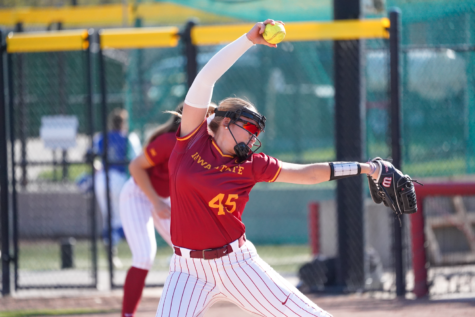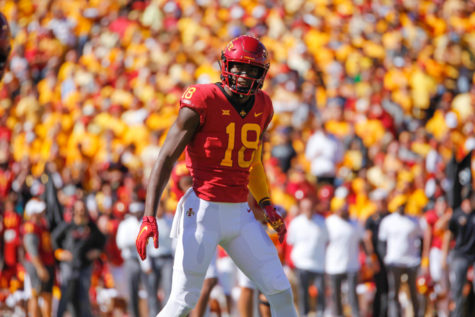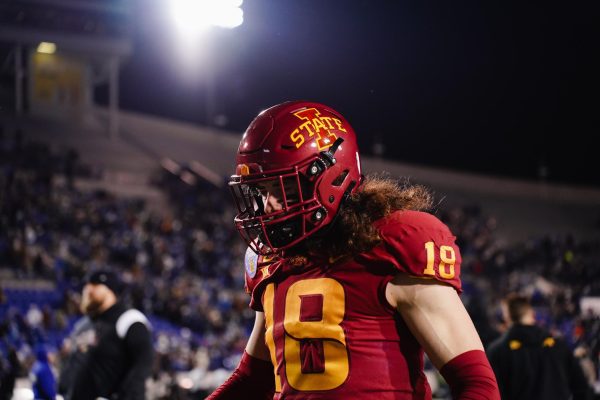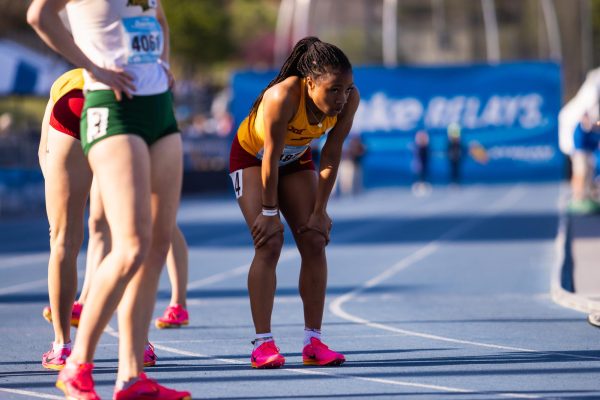Trainers fill important role
March 28, 2007
What does March mean to you?
Students throughout campus have widely varying notions about what the month is truly about. For many, it’s time to celebrate St. Patrick’s Day. To others it means college basketball and March Madness. For one group on campus, however, it is the time when it finally receives the recognition it truly deserves. Throughout the country, March is known as National Athletic Training Month.
In recognition of National Athletic Training Month, ISU students in the field have been going to area high schools and giving presentations. These presentations inform schools about athletic training and what duties athletic trainers perform. Any exposure received is far overdue to a field that deserves plenty for the work that is done.
“Being an athletic trainer is a lot of work. You are always there before and after practice starts,” said Matthew Beauregard, senior in health and human performance. “For the majority of the time, athletic trainers will put in more work than the players.”
For the majority of the students on campus, the only knowledge of athletic trainers is that they are the ones responsible for helping a player off the field after an injury. Yet when an athlete gets injured, a trainer’s job has just begun. Since they are responsible for getting athletes back onto the field as soon as possible, trainers set up a rehabilitation schedule for injured patients. The amount and length of rehab depends on the type and severity of the injury.
Dealing with injuries is not the lone component of a trainer’s job description. Athletic trainers are also responsible for making sure all athletes receive proper nutrition for the sport they play. The type and amount of food varies on the intensity of competition the athletes will face. They also help athletes with stretching and other exercises to prevent future injuries. Since athletic trainers do many tasks to help out the team, it is now clear why they are widely considered to be just as important to the team’s success as the coaching staff.
Any student interested in the program must first be enrolled in the athletic training option. In the spring, students take the course Exercise and Sport Science 220, which is an introduction into the job field. This class allows students to see if athletic training is something that they enjoy. If students get accepted into the program, they are then considered to be a first-year athletic trainer. These students are assigned to work with the football team for the whole year.
“I always tell the prospects that come in, you put in what you want out of it.” Beauregard said. “The more that you go to practice, the more you see what an athletic trainer actually does. As many hours as you put in, you’ll figure out if this is something you want to do with the rest of your life.”
After that, students are placed with sports, based on qualities like evaluation skills, personality and how well students do in the classroom.
“Athletic training is not for everyone. Many people think that we just tape ankles but it is truly much more than that,” said Jowelle Benson, senior in health and human performance. “This field takes a special type of person who knows how to manage injuries and rehabilitations. It requires a great deal of time management, interpersonal skills, the ability to be creative with rehab, and techniques to create better athletes.”
While the outlook for some jobs and occupations is very bleak, athletic training is the exception.
“[The field of athletic training] has a very good outlook. I can not think of anyone who has graduated from [Iowa State] and not gone on to get a job,” said Mark Coberley, director of athletic training.
Many ISU graduates have gotten jobs because ISU athletic trainers are considered to be highly qualified. This distinction allows current students to land some impressive internships at places such as Walt Disney’s Wide World of Sports, University of Notre Dame football camp and many of the teams in the NFL including the world-champion Indianapolis Colts.
The clout that Iowa State’s program carries causes many NFL teams to call asking for the best-qualified candidates when looking for interns.
















